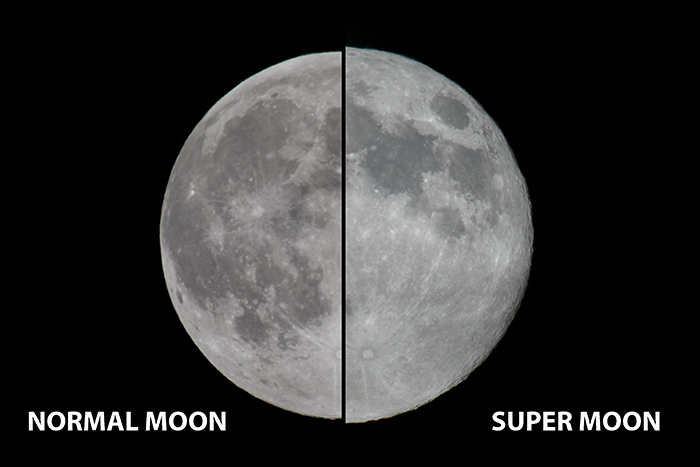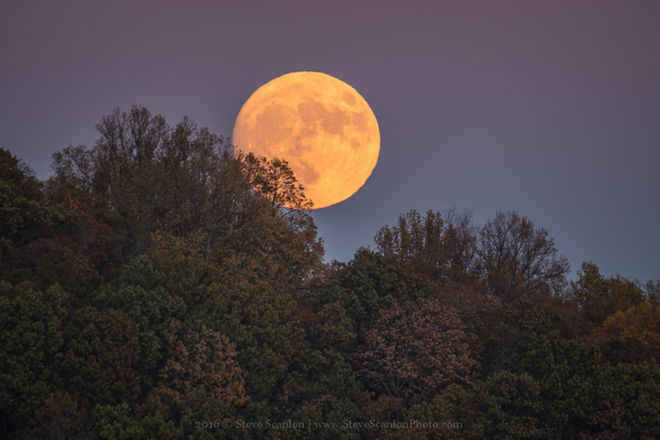Misinformation is the new information; so blatant that the media is currently now being blamed for changing the course of the entire American presidential election mainly due to over-coverage, extreme bias, and the run of false stories – so false that Facebook has expressed its readiness to form a “task force to battle fake news.”
But the media coverage of the elections and what preceded them is only the tip of the iceberg. In the age of virality, the survival of several outlets now depends on generating false or exaggerated stories like Monday’s supermoon event.
Although generating traffic is important, and could mean life or death for media outlets, making misinformation a trend is highly dangerous.
I have been bitter about the fourth estate for a long, long time, so to see another fellow blogger vent about the media’s “laziness” is something to behold.
While far from being a life-changing event like the recent American presidential election, the supermoon trend and the entire hype created around it in recent days exposes how the public is being misled.
Here’s what astro—blogger Jon Groub had to say about it.
“Now, technically, the information being repeatedly parroted by the media is correct. Yes, the full moon really is at its closest in nearly 70 years, and by that token, yes, the full moon is technically the largest it has appeared during that entire time. But that information is woefully incomplete. Without the context that it just doesn’t matter, it is the same as lying to the public. Information without the proper context is useless. In fact, it’s worse than useless. Why doesn’t it matter? Because you cannot tell that the moon is seven percent bigger or brighter. The regular-sized moon isn’t next to it for comparison! And because it’s only a very few percent larger than it usually appears, it is humanly impossible to be able to tell the difference. Unfortunately, this is just another symptom of our 24/7 media. They always need something, anything, to report on – and along comes the stupidmoon, to fill a couple of minutes with its own pretty pictures.” -JGroub, NOVEMBER 14, 2016 – STUPIDMOON, REDUX
In other words, if you missed last night’s much anticipated, highly covered November supermoon for whatever reason, you didn’t miss much at all. In fact, it may just be that you did well by avoiding the temptation of virality since there are several articles today telling moon enthusiasts when they can catch the next one.


According to Lebanese astro-photographer Khalil Azar, co-founder of the Night Collective and founder of BeirutVersus, astronomy groups the world over regularly complain about the supermoon trend at least a week ahead of any given date (since they do occur quite frequently). To them supermoons are non-events, and articles that make of them a rarity not only contribute to misinforming the public, but also misdirect attention from other astronomical events like the upcoming Leonid meteor shower.
Supermoons, or more accurately full moons, present a great opportunity to appreciate the wonders of nature, Azar argues on a more positive note; an appreciation which should not be limited to any given time. When asked about NASA’s and Space.com’s participation in the trend, he says it’s all part of joining the flow; of democratizing information. I tend to agree with Azar’s reasoning in that astronomical events present a good opportunity to admire nature, however its the virality and its effect on mass behavior that has me concerned especially since a supermoon, in comparison to a regular full moon, is not detectable to the naked eye – a piece of information which conveniently went unmentioned in many articles, leading to mass flockings in some areas.
So, why is misinformation dangerous? Because it promotes lazy and dangerous journalism; journalism that can change behavior, attitudes, and collective knowledge. Take this piece that went viral last month titled: “Obituary: Great Barrier Reef (25 Million BC-2016).”
“The Great Barrier Reef of Australia passed away in 2016 after a long illness,” reads the sensational obituary, published in Outside Magazine. “It was 25 million years old.”
While arguably well-meaning, author Rowan Jacobsen inaccurately proclaimed that the Earth’s largest living structure is dead and gone, sending shockwaves across the scientific community, and causing a surge of online environmental mourning.
While there’s no denying the Great Barrier Reef is in serious, serious trouble, but as a whole, it is not dead; in fact three quarters of it is still very much alive and in desperate need of relief.
Journalist, Chris D’Angelo, who debunked this piece quoted Russel Brainard, the chief of the Coral Reef Ecosystem Program at NOAA’s Pacific Islands Fisheries Science Center, as saying that the scientific community has become increasingly concerned with overstatements about the state of our planet, since they can cause people to lose hope.
With alarmist titles such as these, people may start to think, “If there’s nothing that can be done, let’s not do anything and move onto other issues,” he lamented.
D’Angelo’s debunking article has so far garnered 55,783 shares, while the sensationalist inaccurate article penned by Jacobsen has 642,596 Facebook shares to date. This is arguably similar to the article alleging Pope Francis’ endorsement of Donald Trump; a false piece that has 961,313 shares, while the Snopes piece noting the story is fake has about 34,847. Imagine the influence that such false information can have on people.
This begs the question: Why are we addicted to false news? Why isn’t good and accurate journalism winning over virality? The short answer is information bombardment. When subjects are presented with a lot of information, as we are in today’s digital and media world, chances are that shorter, and easier pieces with sexier, alarmist titles will win. This of course leaves much room for error but it does bring in traffic. Virality brings in the dollars and dollars are more important than the common good. Here’s what CBS CEO Leslie Moonves said when asked about his network’s amplified coverage of Donald Trump, the “viral candidate”.
“It may not be good for America, but it’s damn good for CBS. … [T]he money’s rolling in … [T]his is going to be a very good year for us.”
The same methodology is currently being applied the world over, Lebanon and the region included. Consider the “sex news” you see online, the “flying dinosaurs,” the “Leila Abdel Latifs,” the Lebanon being “the second most polluted country in the world”; all of these are inaccurate at best and false at worst. All of these are contributing to the toxic culture of misinformation. So before you click, before you share, take a moment to think about how you may be being duped, how you may be contributing to this environment.
Media literacy is a weapon; one that can save lives, or even an election. Here’s hoping it becomes a compulsory subject in all our educational systems because if we continue on this path, things may get worse, a lot worse, real soon.
In the words of director of the Nieman Journalism Lab, Joshua Benton, it’s been said that we get the media we deserve: that the journalism we see is a reflection of business structures and audience decisions, not the result of an elite’s decisions to shape public opinion. There’s a lot of truth to that. But the information we produce and consume is generated by human beings, not systems, and those human beings have just gotten the shock of their professional lives. If we’re going to build a better environment for news, we need to think about these issues in a much bigger context.


